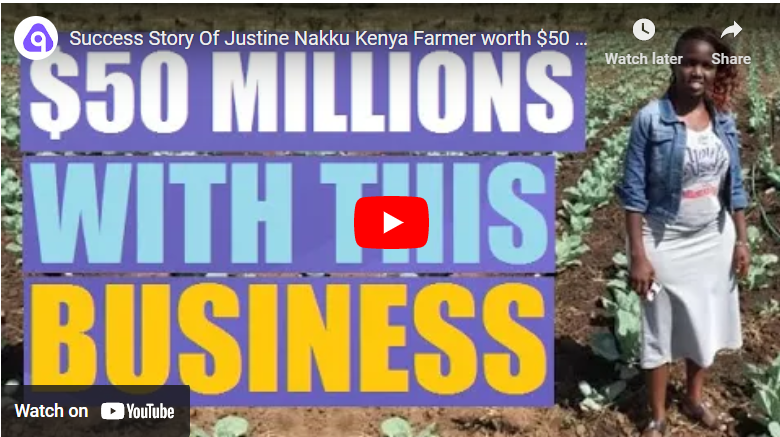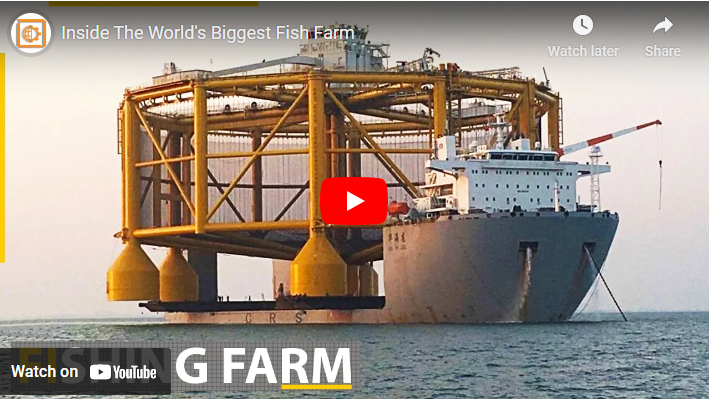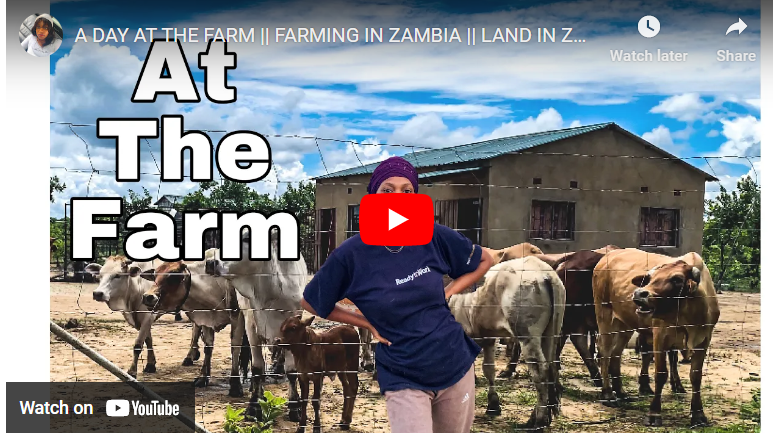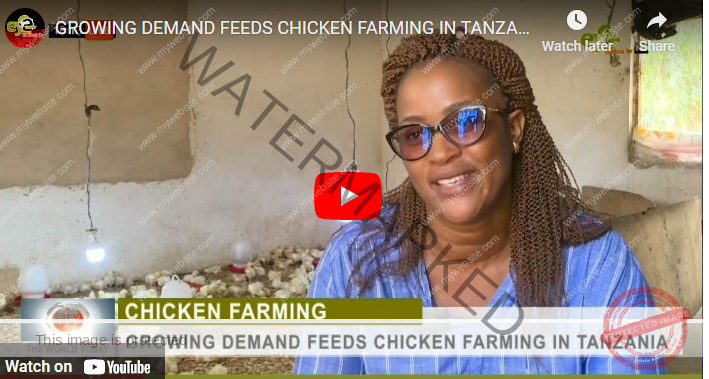Dairy farming is a crucial sector in South Africa’s agricultural industry, contributing significantly to the country’s economy. It involves the long-term production of milk, which is processed either on the farm or at a dairy plant, eventually leading to the sale of dairy products.
In recent years, the industry has seen immense growth, with some farmers achieving significant wealth and success.
The list of the richest diary farmers in Kenya includes Loubser’s family, Alan and Frances Webster, Tshilidzi ‘Chilli’ Matshidzula. From innovative technology adoption to strategic partnerships, these farmers have shown that with dedication and hard work, success is achievable in the dairy farming sector.
Richest Diary Farmers In South Africa
Dairy farming is a vital component of South Africa’s agricultural sector, contributing significantly to the country’s economy.
The industry provides employment opportunities for millions of people and supports other sectors such as manufacturing and retail.
We’ll be taking a look at the Loubser’s family, and other richest dairy farmers in South Africa and their success stories.
Read Also: Richest Poultry Farmers In Uganda [Top 6 Ranked]
Successul Diary Farmers in Kenya 2026
#1. Loubser’s family
Net Worth: Around $68 million USD
The Loubser family, based in Cape Town, South Africa, is known for their successful dairy farming business, Fair Cape Dairies. The family-run farm is operated by five brothers, each of whom is responsible for a different department.
The CEO of the company is Melt Loubser, while his brother Johannes looks after the dairy herd. The Loubser family has established themselves as one of the most successful and wealthiest dairy farmers in South Africa.
Read Also: Top 5 Richest Dairy Farmers In India
Dairy Farm Business
Fair Cape Dairies was established in 1995 and has grown substantially over the years. Fair Cape Dairies, owned and operated by the Loubser family, is a dairy farm situated just 35km from Cape Town.
The farm now produces 1.5 million litres of fresh milk each month, along with 1.5 million litres of long-life milk, 1.2 million litres of yoghurt, 400,000 litres of dessert and Every month, 1.2 million liters of fruit juice and milkshakes are produced.
The farm currently produces 70 million litres of milk per year from its herd of predominantly Holstein cows, along with 350 Ayrshire cows and 250 Jerseys.
Read Also: Top 5 Richest Diary Farmers In Kenya
The cows are milked three times a day, with Holsteins averaging 40 litres per day, Ayrshires averaging 50 litres per day, and Jerseys averaging 22 litres per day.
The farm has 2,500 hectares of workable land and harvests 1,000 hectares of wheat each year, with an average yield of 4.5 tonnes per hectare over the past five years.
The farm also harvests 1,500 hectares of maize silage, lupins, and oats each year. In addition to dairy farming, the Loubser family also operates an irrigated vineyard that extends to 100 hectares, where they harvest cabernet sauvignon, pinotage, and sauvignon blanc.
Read Also: Top 10 Richest Diary Farmers In The World
Net Worth
The Loubser family’s net worth is estimated to be around R1 billion ($68 million USD). Their successful dairy farming business has been a significant contributor to their wealth.
The Loubser family’s commitment to excellence in dairy farming has helped them become one of the most successful and wealthiest dairy farmers in South Africa.
#2. Alan and Frances Webster
Alan and Frances Webster are known as one of the richest dairy farmers in South Africa. They arrived in the Weenen area of KwaZulu-Natal in the late 1990s with the goal of becoming commercial dairy farmers.
Read Also: Top 5 Richest Farmers In Ghana
Prior to this, the couple had been diligently saving money to achieve their dream, with Alan working as a farm manager and Frances as a lecturer at a teacher training college in Nelspruit.
Despite their best efforts, their savings weren’t enough to cover the costs of starting their dairy farm, and they had to seek out a private loan to get their venture off the ground. Undeterred, the couple forged ahead and built a thriving dairy business.
Read Also: Top 5 Richest Famers In America
Dairy Farm Business
Alan and Frances Webster, started their dairy farm business in Weenen, South Africa, with a small dairy herd and a tiny four-point milking parlour.
They initially sold 500ml bottles of milk to customers in the local traditional authority areas, bus rank, and hawkers.
After five years of operating in survival mode, they decided to attend a cheese-making course and turned their excess milk into cheese, which had a longer shelf life.
They eventually signed a milk supply agreement with Nestlé in 2000, which allowed them to focus on managing their herd better and expanding their business.
The couple’s daughter and her husband joined the business in 2014, enabling Alan and Frances to slowly take a back seat while their daughter and son-in-law took on more responsibility.
Read Also: Top 10 Richest Farmers In Africa
#3. Tshilidzi ‘Chilli’ Matshidzula
Tshilidzi ‘Chilli’ Matshidzula is a successful dairy farmer based in the Eastern Cape, South Africa. He was awarded the Agri SA Toyota Young Farmer of the Year award for his outstanding contribution to the agriculture industry.
Chilli played a key role in transforming a failed land reform project into a thriving dairy farm, with an annual turnover of R14.5 million.
Chilli grew up in Thohoyandau, Limpopo, where he completed his matriculation in 2004. Despite the negative perception towards agriculture among his peers, he pursued a National Diploma in Animal Science and Production at the Tshwane University of Technology in 2005.
In 2007, Chilli was selected by Amadlelo Agri, a company that promotes transformation in agriculture, to work on its dairy farm, Burlington, near Cookhouse in the Eastern Cape.
Read Also: Top 12 Richest Farmers In Australia
After arriving in the province, Chilli landed a management position in a share-milking operation on a land reform farm near Alexandria, Little Barnet. This was a partnership between Walter Biggs and 17 land reform beneficiaries comprising the Longvale Trust (LT).
The trust had been awarded the 532ha farm and its title deeds in 1998 as part of the Land Redistribution for Agricultural Development (LRAD) programme. He was able to establish a beef herd with just a grant from LRAD and a loan from the Land Bank. However, financial stress led the LT to seek assistance in reviving a derelict dairy on the farm.
Recognising the farm’s broader potential, Walter suggested a share-milking scheme in which he would provide the movable assets, including the cattle, machinery and management, and LT would provide the fixed assets, including the land and the required structural improvements.
Chilli was offered a management position in this scheme, and he played a pivotal role in transforming the failed land reform project into a successful dairy farm.
Chilli’s hard work, dedication, and expertise in the agriculture industry have been instrumental in his success as a dairy farmer in South Africa.
4. Irene Diary Farm
Irene Dairy Farm is a family–run dairy farm located in Irene, South Africa. The farm has been in operation since 1934 and has been owned and operated by the same family for three generations. The farm is known for producing quality milk and dairy products, and it is one of the largest dairy farms in South Africa.
The farm has a total of 1,400 cows and produces around 3,000 liters of milk per day. The farm also produces various dairy products such as butter, cheese, and yogurt. The net worth of Irene Dairy Farm is estimated to be around R200 million (approximately US$13 million).
Dairy Farm Business
Chilli Matshidzula is a successful South African dairy farmer who started Little Barnet farm with his family in 2007. Initially, the farm had 49 cows and used an 11-point static parlour.
Now, after years of hard work and dedication, the farm has grown to milk over 500 cows and has expanded its pastures to 220ha of dryland kikuyu pastures and 60ha of annual rye grass.
In 2009, after a tragedy occurred, Chilli was able to buy into the business with a loan from the Land Bank and now owns 40% of the business.
Chilli’s focus has always been on increasing cow numbers to ensure continuous profitability by optimising his pastures and learning from the best regional farmers. Walter’s wife on the other hand manages Little Barnet’s finances.
Chilli’s long-term plan is to expand to 190ha under irrigation, allowing him to farm and milk between 850 and 900 cows, and compete with the big players in the industry.
The Type of System the Richest Dairy Farmers Use
The richest dairy farmers in South Africa use a variety of systems, including:
#1. Intensive Farming
This system involves keeping a large number of cows in a small area and providing them with everything they need, including food, water, and shelter. This system is often used by large-scale commercial farmers to maximize their production.
#2. Pasture-based Farming
This system involves keeping cows on pasture and allowing them to graze freely. This system is often used by small-scale farmers who rely on natural grazing and do not have the resources to invest in intensive farming.
#3. Hybrid System
This system combines both intensive and pasture-based farming, allowing farmers to benefit from both systems. The hybrid system involves grazing cows during the day and keeping them indoors at night.
Lucrativeness of Dairy Farming
Dairy farming in South Africa can be a profitable venture, and the richest dairy farmers have shown that it’s possible to make a considerable income from this sector. Here are some factors that contribute to the profitability of dairy farming:
#1. High demand
There is a high demand for dairy products in South Africa, making it a lucrative market for dairy farmers.
#2. Favorable government policies
The government has implemented policies that support the growth of the dairy industry, including subsidies and incentives for farmers.
#3. Improved technology
The use of technology has revolutionized the dairy industry, enabling farmers to increase their production and efficiency.
#4. Access to finance
Access to finance is essential for farmers to invest in their operations and increase their production.
#5. Export opportunities
The South African dairy industry has access to international markets, which can be a significant source of revenue for dairy farmers.
Successful Tips about the Richest Dairy Farmer
The following are some successful tips used by the richest dairy farmers in South Africa:
#1. Invest in high-quality genetics:
The genetics of the cow plays a crucial role in the quality of the milk produced. The richest dairy farmers invest in high-quality genetics to ensure that their cows produce high-quality milk.
#2. Prioritize animal health and nutrition
The health and nutrition of the cow are critical for its productivity. The richest dairy farmers prioritize animal health and nutrition, ensuring that their cows are well-fed and receive proper medical attention.
#3. Embrace technology
The use of technology has revolutionized the dairy industry, enabling farmers to increase their production and efficiency. The richest dairy farmers embrace technology, investing in modern equipment and systems to enhance their operations.
#4. Constantly innovate
The dairy industry is constantly evolving, and the richest dairy farmers are always looking for ways to innovate and improve their operations.
#5. Build a strong team
Dairy farming is a team effort, and the richest dairy farmers understand the importance of having a strong team. They invest in their staff, providing them with the necessary training and resources to perform their duties effectively.
Factors that Contribute to Dairy Farming
There are various factors that contribute to the success of dairy farming in South Africa, including:
#1. Genetics
The genetics of the cow plays a significant role in the quality of the milk produced. Farmers need to invest in high-quality genetics to ensure that their cows produce high-quality milk.
#2. Animal Health And Nutrition
Proper animal health and nutrition management ensure that the cows are healthy, productive, and produce high-quality milk.
#3. Technology
The use of technology in dairy farming has revolutionized the industry, making operations more efficient and profitable.
#4. Farm Management
Efficient farm management practices help dairy farmers to optimize their operations and maximize their profits while minimizing their expenses.
#5. Access To Financing
Access to financing is crucial for dairy farmers to purchase equipment, livestock, and other inputs necessary for their operations.
Challenges of Dairy Farming
Despite the potential for profitability, dairy farming in South Africa also comes with several challenges, including:
#1. Fluctuating Milk Prices
Milk prices can be unpredictable and fluctuate based on market demand, making it difficult for dairy farmers to plan and budget.
#2. Climate Change
Climate change can impact the productivity of dairy farms, leading to droughts, heatwaves, and other weather-related challenges.
#3. Disease Outbreaks
Disease outbreaks can decimate livestock populations, impacting the productivity and profitability of dairy farms.
#4. Competition From Imports
South Africa imports a significant amount of dairy products, leading to competition that can impact local dairy farmers.
#5. High Input Costs
The cost of inputs such as feed, vaccines, and equipment can be high, impacting the profitability of dairy farming operations.
Best Practices of Dairy Farming
To overcome the challenges and maximize profitability, dairy farmers in South Africa need to adopt best practices, including:
#1. Efficient Farm Management Practices
Efficient farm management practices such as proper record-keeping, animal health management, and efficient milk production systems can help dairy farmers maximize profits.
#2. Access To Financing
Dairy farmers need access to financing to purchase equipment, inputs, and livestock necessary for their operations.
#3. Continuous Education And Innovation
Continuous education and innovation are essential for dairy farmers to stay informed about the latest practices, technologies, and industry trends.
#4. Collaboration And Networking
Collaboration and networking with other farmers, industry experts, and stakeholders can provide valuable insights and opportunities for dairy farmers.
#5. Proper Animal Welfare
Proper animal welfare management ensures that cows are healthy, productive, and produce high-quality milk while promoting ethical and sustainable farming practices.
List Of Dairy Farms In South Africa
Some of the prominent fairy farms in South Africa are highlighted below.
- Bona Bona Game Lodge and Dairy Farm
- Waaikraal Dairy Farm
- Drostdy Hof Dairy Farm
- Fairview Cheese and Wine Farm
- Gay’s Dairy
- Boschendal Farm
- Camdeboo Dairy Company
- La Luna Farm
- Gourmet Greek Dairy Farm
- Smitsfield Dairy Farm
Top 10 Dairy Companies In South Africa
Here are the top 10 diary companies in South Africa:
- Clover
- Parmalat
- Nestle
- Woodlands Dairy
- Lancewood
- Fair Cape Dairies
- Lactalis South Africa
- The South African Milk Processors’ Organisation (SAMPRO)
- Galito’s
- Alpine Dairy
Where To Buy Dairy Cows In South Africa
Dairy cows can be purchased from various sources in South Africa, including:
- Livestock auctions
- Online marketplaces such as AgriMag and Livestock Trader
- Breeders and dairy farms
- Private sellers
- Agricultural shows and exhibitions
What Is The Most Popular Breed Of Dairy Cattle In South Africa
The Holstein breed is the most popular dairy cattle breed in South Africa. Holsteins are known for their high milk production and are favored by dairy farmers for their efficiency in milk production.
How Much Is A Dairy Cow In South Africa
The price of a dairy cow in South Africa can vary depending on various factors such as the breed, age, sex, and location.
On average, a good quality dairy cow can cost anywhere from R20,000 to R40,000, while high-end purebred cows can fetch prices of R100,000 or more.
It is recommended to do thorough research and compare prices from different sources before purchasing a dairy cow.
Conclusion
The dairy industry in South Africa has seen remarkable growth and success, with several farmers emerging as some of the wealthiest individuals in the country. Despite the challenges faced by the industry, these farmers have been able to overcome them through innovative practices and dedication to their craft, paving the way for a bright future for dairy farming in South Africa.



